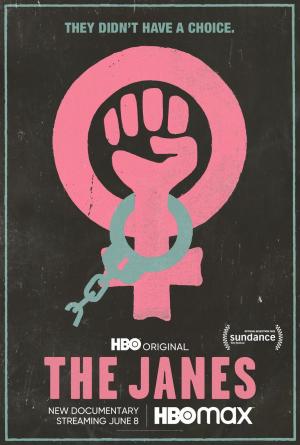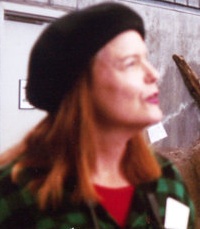
We are back in pre-Roe Chicago. A doctor speaks about sepsis, the emergency rooms overflowing daily with feverish women dying from botched efforts to rid themselves of unwanted pregnancies. Another woman recalls her phone interactions with a mob operative. Yes, they can get her an abortion; they have three options, from most to least expensive: a Rolls Royce, a Cadillac, or a Chevy. Young and strapped for access to cash, she elects the Chevy, and her abortion is perfunctorily performed in a dingy hotel room where she is left bleeding with no closing advice on how to further care for herself as she recovered.
The woman will go on to become a “Jane,” a member of a group of young women who developed an underground abortion network in Chicago before the since-reversed 1973 US Supreme Court decision legalizing abortion. The story of this network is told in the 2020 documentary The Janes. The film was recently shown at the Danville Area Community College and sponsored by Personal Pac Danville, which has been organizing the community around fighting recent anti-abortion restrictions passed by their city council, as well as the attacks on an abortion clinic scheduled to open in the area (see Barbara Kessel’s article in the September-October 2023 Public i).
The Janes is a vivid, often searing documentary that can be lauded for many of its distinctive features. For one it derives a great deal of its power by focusing on first-person interviews with the Janes themselves, with one of the male abortionists they worked with, and even with a cop who ended up arresting several of the network’s women.
As a left-wing activist and feminist in the late ’60s and ’70s, another feature of the documentary is gratifying. The directors grounded the emergence of the network in the social movements that preceded and coexisted with it. Individual Janes were involved in voting rights mobilizations in the South. Others had participated in male-dominated anti-war groups where they found themselves relegated to clerical and cooking tasks. Such treatment spurred the woman, like many other social-activist women of the time, to develop a radical feminist perspective which emphasized self-help and mutual aid on behalf of themselves and all their “sisters.”
As their network developed after 1968 and the difficulties of accessing doctors to offer illegal abortions continued to hinder their work, some in the network were trained by their one male abortionist to perform abortions themselves. Abortions were offered on a sliding scale, often for free, and as a result most women who were helped came from poor or low-income working-class families. Many were women of color. In contrast, with one exception most of the Janes were white.
The network developed a process in delivering services that emphasized humane treatment and tried to maximize security. Prospective clients were interviewed and, having affirmed genuine and non-conflicted interest in having an abortion, an appointment date was set, with a woman first being sent to a pickup location separate from where the actual abortion was performed. Post-procedure they were counseled on how to care for themselves and what to do if bleeding did not stop. Follow up phone calls were made to check on the woman’s recovery.
Ultimately in 1972 seven Janes were arrested by a group of homicide detectives and charged. In fact, Chicago police had long known about the network, but probably hesitated to move against it, not least because some of their own wives, daughters, and girlfriends had had recourse to the network. Their defense attorney was a brilliant civil rights litigator, Joann Wolfson, who had previously represented the Black Panther Party and at first resisted taking the case because she considered the woman a “bunch of hippies”. It took the intervention of the one black Jane, Marie Leaner, to have her reverse her position. Once engaged and aware that the US Supreme Court had agreed to take up the question of abortion in Roe v. Wade, she kept filing appeals to delay the Janes’ case from going to trial. The tactic worked and the charges were dismissed against the group once the Supreme Court reached its 1973 landmark decision.
After the showing of the film, one of the former Janes, Eileen Smith, was present to take questions. Then Caylynne Dobbles from Personal Pac Danville talked about the dangers to abortion rights since the Dobbs decision in 2022. Long focused on getting politicians supportive of reproductive rights elected, she outlined how Personal Pac was working to assure that the Danville mayor and Danville Council members who had voted to ban the use of the abortion medication mifepristone in the city would not be reelected. In this regard it is important to note that the medication ban passed only by a tie-breaking vote of the mayor.
Activism like that offered by Personal Pac is essential in the post-Dobbs period—as the Danville case indicates, even in a state like Illinois where access to abortions is protected. As a spur to activism, one cannot go wrong by viewing a film that reminds us of how deadly and dangerous being denied access to abortion can be. The Janes can still be found on HBO.

193 total views, 2 views today